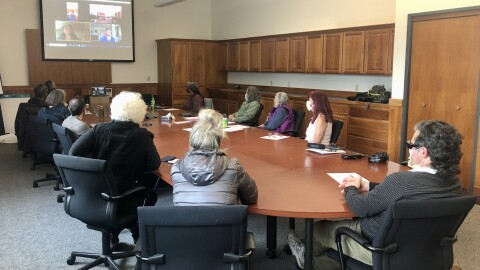-
The program is meant to help people with certain mental health conditions, but there are still ongoing issues.
-
Many parts of Oregon are lacking in mental health care providers, especially in rural counties.
-
After ‘missing the boat’ on social media regulation, an Oregon senator cites mental health concerns, youth access as key issues with unregulated AI use.
-
Five years ago, Oregon provided $6 million to fund short-term residential centers for those experiencing mental health crises. For organizations hoping to launch programs, getting funding was only the start of challenges.
-
San Mateo, California adopted a new approach to mental health 911 calls by pairing police with mental health clinicians. Researchers found that it reduced the number of future mental health emergency calls and involuntary psychiatric holds by roughly 17%.
-
Senior Californians in rural communities are dying by suicide at troubling rates—struggling with pain, cut off from doctors and mental health care, with guns at hand. Access to care and safety planning would help, experts say.
-
In the most-comprehensive look yet at whether people are using Gov. Gavin Newsom’s CARE Court, CalMatters found that far fewer Californians are enrolled in the mental health program than he projected.
-
California spent hundreds of millions on prison and hospital healthcare staff, auditors found, but vacancy rates rose since 2019, exceeding 30% at three facilities despite bonuses and pay raises, with inadequate oversight and planning.
-
In October, Shasta County officials came out against a state grant application to build a large behavioral health facility. Some have now changed their minds.
-
A Humboldt County school district says the U.S. Department of Education unlawfully cut short a five-year grant, leaving rural students without critical mental health support.
-
The proposed True North campus could bring hundreds of jobs and new crisis beds, but county leaders say it doesn’t serve Shasta’s most urgent needs.
-
Humboldt County is getting tens of millions of dollars for mental health care in an effort to relieve pressure on emergency departments and jails serving those in crisis.
-
In California, kindergartners repeat worries heard at home. Older kids text to check on parents during class. Therapists say mental health is at risk now and in the long term.
-
The JPR news team gathers for a roundtable discussion of the top news stories they've been working on this week.















